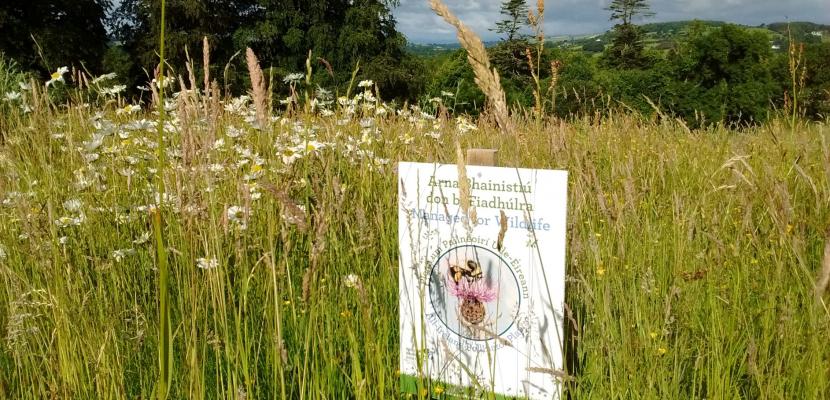
All-Ireland Pollinator Plan (AIPP) Framework

About this good practice
The loss of natural and semi-natural habitats has been a key driver in pollinator declines across Europe. The AIPP and its framework is an island-wide (Ireland and Northern Ireland) attempt to reverse declines in pollinating insects. In providing targeted and actionable information and resources that can be used to communicate a biodiversity message to wide audience, it has been developed in recognition that the decline of pollinators is a serious problem which requires immediate attention to ensure the sustainability of our food production, avoid additional economic impact on the agricultural sector and protect the health of the environment. The main objective of the first AIPP is to make Ireland pollinator friendly by taking actions on farmland, public land and private land. The strategic objectives are: 1) Making Ireland pollinator friendly; 2) Raising awareness of pollinators and how to protect them; 3) Supporting beekeepers and growers; 4) Expanding our knowledge on pollinators and pollination service, and; 5) Collecting evidence to track change and measure success. The first AIPP includes 24 targets and 81 actions. Resources include a Junior All-Ireland Pollinator Plan, guidelines for wide-ranging users (farmers, municipalities, transport authorities, communities, businesses, schools and gardeners), how-to-guides, signage templates, pollinator-friendly plant lists, posters, presentations and videos, as well as the “Actions for Pollinators” online mapping system.
Expert opinion
Saving pollinators should be a planetary priority. Their survival is fundamental for ensuring food security, as more than 75% of food crops and 35% of agricultural land in the world directly depend on animal pollination. They are also essential for conserving biodiversity and their worrying status is indicative of the poor health in which natural ecosystems currently lie in many regions of the world, including in the Europe. For this reason, the Nature Restoration Plan put forward by the European Commission via the new 2030 Biodiversity Strategy has reversing the decline of pollinators as one of its cardinal objectives. Good practices like the All-Ireland Pollinator Plan (AIPP) have the merit of tackling the issue across the board by fostering knowledge on pollinators and promoting measures to better protect them with a wide range of stakeholders. The fact that AIPP was signaled as a successful action in the context of the 2018 EU Pollinators Initiative, that it could count on national widespread support (with more than 340 public and private partners since its inception in 2015) as well as its role in influencing the conception and implementation of similar actions in other EU regions are evident signs of the added value of this good practice.
Resources needed
The AIPP was developed without funding by a 15-member expert group. 100+ partners fund their own actions. The Project Manager dedicates 1.25 days/week in their existing role. In 2020, €15,000 was secured from government for resource development and €55,000 from SuperValu to fund a Project Officer.
Evidence of success
The AIPP is supported by 108 governmental and non-governmental organisations and 230+ businesses across the island of Ireland. Of the 81 actions in the Plan, 96% are now either completed or ongoing through collaboration with wide-ranging partners (Year 4 Progress Report). The AIPP has informed pollinator strategies in Scotland, Norway and the Netherlands. The AIPP team continues to collaborate with the IEEP to provide free resources to EU jurisdictions who are developing pollinator strategies.
Potential for learning or transfer
The AIPP framework is potentially interesting for other regions since it applies a bottom-up, non-threatening approach to address the degradation of European ecosystems and the service they provide. It is an exemplary resource which can be easily transferred to other jurisdictions with a view to raising awareness of the economic, environmental and social value of the regulating services provided by pollinators and transferring the AIPP good practice. Although operating without a permanent or full-time staff, the AIPP has been identified and applied as an appropriate framework for the development of pollinator strategies in the EU Pollinator Initiative 2018. Transfer has already taken place with the AIPP directly informing pollinator strategies in Scotland, Norway and the Netherlands, among others.
Further information
Website
Good practice owner
You can contact the good practice owner below for more detailed information.
National Biodiversity Data Centre (NBDC)

